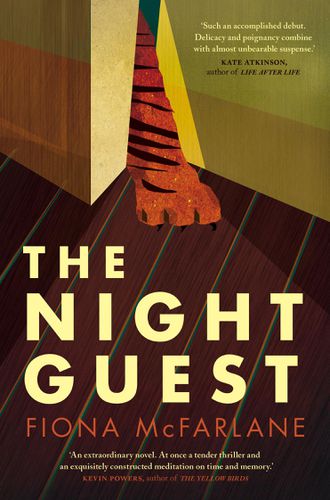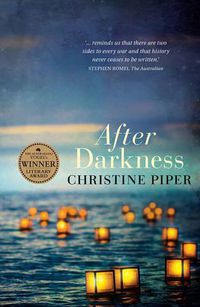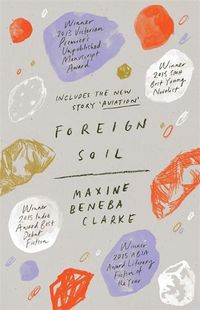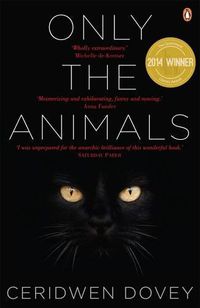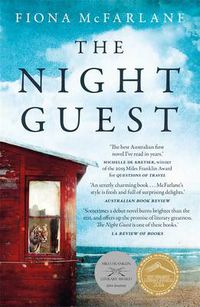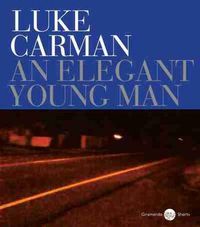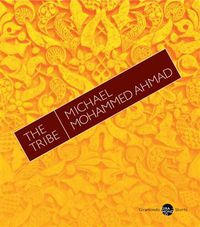NAW Reading Challenge: Which book should win?
Participants in our NAW Reading Challenge make a case for their favourite book to win!
To celebrate our inaugural New Australian Writing (NAW) Award shortlist, we’ve held a NAW Reading Challenge. As part of the challenge, participants have read either 3 or 6 of the shortlisted titles. Each week, we’ve shared some of their feedback on our blog. Congratulations to all our participants!
We’re announcing the winner at a special award ceremony tomorrow but first, to close the challenge, we’ve invited all the participants to ‘make a case’ for which book they believe should win. Below are their recommendations.
Jill says:
In the battle between ‘new’, ‘Australian’ and ‘writing’ (quality of) – which one should win? Is it possible that one book might balance all three aspects? What should I be looking for in a book that wins such a prize? If I was running the award, it would prize (in order): the quality of the prose, a good story, freshness, a sense of the writer having a go at something challenging, element of surprise/provocation, polish and capacity to last (it won’t look strange in ten years time).
I liked thinking about these stories jostling together in competition, and what they say about Australia at present and the state of Australian publishing. It’s been unexpectedly heartening. I didn’t expect the range, the quality or the variation. I may become a shortlist junkie.
So who should win? To be honest, I did not approach the first book with much enthusiasm. An imaginary tiger – have we not had enough literary tigers recently? And a dementing widow – euugghh. But this book took hold of me from the opening. It is the stand-out book of the six. It has the page-turner qualities of a thriller underpinned by pervasive psychological unease. The writer had to do something quite difficult: tell a story from the point of view of an elderly narrator who is manifestly unreliable. The reader simultaneously empathises, questions and suspends judgement as events unfold. There are no gimmicks in this story, just the depiction of complex human needs: for love, companionship and independence. There’s great charm in the parallels: the lives of the two women; and the invasive and ambiguous presence of both Frida and the tiger in the house.
The prose is simple, confident, assured. No try-hard moments. It will last. I could see Ruth’s coastal house, slightly run-down, the scrub of the foreshore, the sense of isolation and disconnect engendered by Ruth’s age and location. It’s a book about something that matters. And I loved the tiger. And Frida. The shadowy men (all of them) who inhabit the outskirts of the novel. The fragments of life in Fiji, the yearning for love, the disappointments. The craziness of the tiger-slaying scene. The hair dye. It’s a great read. It screams – if this is not a contradiction in terms – maturity.
My runners-up – they can slog it out for second – An Elegant Young Man and Foreign Soil – both well-written, going to interesting places in the Australian zeitgeist, both with a handle on voice that is worthy of note. And the rest – not too shabby at all. Readings, thanks for the challenge as a reader – I have really enjoyed it.
Cherie says:
I would love to see After Darkness by Christine Piper announced the winner of the Readings New Australian Writing Award. A highly satisfying and rewarding novel, After Darkness is a beautifully written and elegant story that will stay with you long after you’ve finished reading.
The many themes present in the novel are universal and definitely relevant today. I enjoyed all three strands of the story, the wonderful characters and have even been prompted to do some further reading about Australia’s internment camps. While I’m a keen reader I am unfortunately not a particularly articulate writer so am afraid my words do not do this wonderful book justice. Thanks to the NAW Reading Challenge I was prompted to read the novel sooner than I probably would have and it has certainly been one of my reading highlights of the year.
Laura says:
Despite only doing the three book challenge, I feel like I’ve been taken on a literary journey through so many different personalities, eras and species. The books I read were The Night Guest, Only the Animals and Foreign Soil. Only the Animals and Foreign Soil were both beautifully written but I felt like there was something lacking. I wanted to feel more from the authors. I wanted to want to keep turning the pages.
I am voting for The Night Guest. I loved this novel for so many reasons. The characters completed each other well which provided a good energy and flow to the storyline. It gave it a natural momentum which strengthened the underlying themes. However, the main reason I loved this book was for its complex layers. Hints of our heroine’s memory problems show themselves slowly, growing more and more through each chapter until we are overwhelmed with it. This strengthened Ruth’s naivety and confusion which made her acceptance of a stranger into her house more believable. It also gave the reader a good insight into the characters problems first hand without neglecting to continue telling the story.
Alice says:
A book of short stories is great for dipping, sharing and tasting, like a tasty entrée plate. But nothing is more satisfying that a powerful story told by a confident story-teller in control of her subject matter.
The structure of After Darkness is as intricate as that of a Japanese origami model. The storied leaves of the novel are folded in each other as it moves and shifts between geographies and decades, all united by the single-person narrative voice of Tomokazu (Tomo) Ibaraki. Piper’s masterly command over her materials and her craft can be seen in the way that what is not said becomes just as important as what is. The spaces are as important as the color.
A young Japanese medical student is sworn to secrecy about terrible deeds, and it is this secrecy, this silence, which eventually shatters his private life. Even the joy he should be feeling at news of forthcoming fatherhood is marred by images ‘of blistered skin and a child’s black fingers’. The end comes when the baby is lost, and the marriage collapses.
A disillusioned Japanese medical researcher has left Tokyo to work in a hospital in Broome. The story of Ibaraki’s relationship with Sister Bernice is, again, a story of how silence impedes human understanding: ‘I would like to have said such things and more to you in person. Not doing so is my greatest regret. When I kept silence, my bones waxed old through my roaring all the day long (Psalms 32:3)’.
‘Misguided loyalty’ leads the interned Japanese doctor to say nothing in the face of accusations against a senior Japanese officer. Silence plays its powerful part again:
‘I could have told someone … ‘.
“Did you tell anyone about the bullying?”
My throat was tight. “No, I didn’t think it was my place. I’m only a doctor – I try to stay away from camp disputes.”
Only at the very end of the novel does Ibaraki, now 81 years old, finally break his silence: 'Dear Editor … I am writing to you … because there is something the Japanese people should know.’
This novel has a powerful tale to tell about the significance, and insignificance, of individual acts within the broad sweep of history, and about the significance, and insignificance, of historical events in our individual lives.



